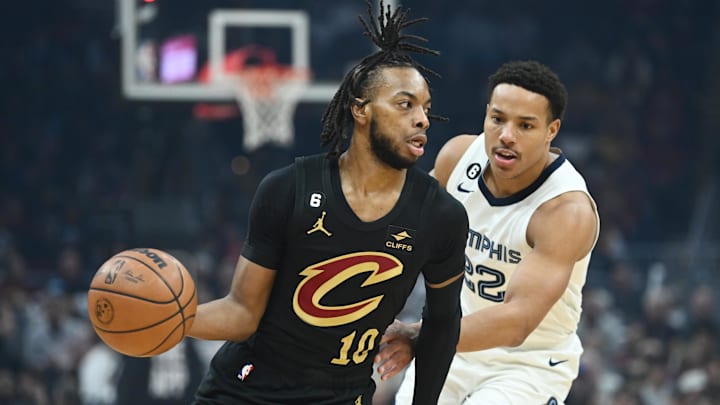Giannis? KD? Nope, Desmond Bane was the centerpiece of the offseason's first blockbuster trade. The Memphis Grizzlies dealt the star sharpshooter, in the second year of his five-year contract, to the Orlando Magic in exchange for Kentavious Caldwell-Pope, Cole Anthony and four first-round picks (plus a swap).
This is a good-to-great outcome for both sides. Orlando takes a big step toward contention and addresses its biggest weakness — perimeter shooting. The Grizzlies stockpile an impressive volume of future assets and replace Bane with a perfectly adequate vet in KCP, who was contributing to a championship team a couple short years ago.
That said, what if the biggest winner of this trade isn't Orlando or Memphis? It may be the Cleveland Cavaliers, even if Orlando just made their path to a 2026 championship harder. The Magic just set the market for secondary and tertiary stars extraordinarily high, which is a development Cleveland can take advantage of.
Cavaliers might follow Grizzlies' Desmond Bane blueprint with Darius Garland
With Cleveland once again coming up short in the playoffs, trade rumors are percolating around All-Star point guard Darius Garland. He's coming off an incredible individual season, averaging 20.6 points and 6.7 assists on .472/.401/.878 splits for the 64-win Cavs. The 25-year-old will miss four to five months after undergoing surgery on his big toe, but when healthy, Garland is one of the NBA's most dynamic point guards.
If you're looking to poke holes in Cleveland's roster after another postseason flameout, however, it starts with the small backcourt. Donovan Mitchell can play bigger than his size, but he's not an especially engaged or versatile defender. Garland is outright bad on defense, as he lacks the size and strength to handle most assignments — especially when opponents target him on switches. That doesn't mean he is unplayable or a fake star, but it makes the fit with Mitchell a bit problematic, especially since Cleveland is short on perimeter stoppers elsewhere.
One could argue that swapping Garland for a couple solid role players and a boatload of picks is the right move. Cleveland would theoretically add depth, increase flexibility on the trade front, and address their defensive liability in the backcourt. Just removing Garland from the lineup does not improve Cleveland, but if it gets the Cavs a solid wing and a more durable defensive point guard? And future picks to one day trade for a better-fitting offensive co-star next to Mitchell and Evan Mobley? Well, Cleveland has to consider it. And it's fair to say Garland's market is in the same range as Bane's, maybe even higher.
Which NBA teams can sell the farm for Darius Garland?
Well, Orlando was a great landing spot on paper before the Bane trade. The Magic need shooting and backcourt help. Garland would've been the perfect offensive table-setter in Orlando, and the Magic's abundance of length and athleticism in the frontcourt could have masked Garland's deficiences on defense. Is he a better option than Bane? It doesn't really matter anymore.
With the Magic off the table, the best landing spots for Garland on paper are probably the Dallas Mavericks (Garland and Kyrie Irving isn't exactly a great defensive backcourt, but Anthony Davis and Cooper Flagg can plug holes) and the Toronto Raptors (we know Toronto wants to take a big swing and the Raptors can surround Garland with length on defense).
It's hard to find a perfect fit for a player with Garland's limitations, as there are obvious parallels between Cleveland's roster and what Dallas would look like after a hypothetical Garland trade. The Raptors can land Garland, but he is not the stout on-ball stopper Masai Ujiri typically covets next to his long, lanky wings.
That said, the talent is undeniable and Garland can boost the efficiency of any offense. If the Cavs do put him on the block — and that's a huge if, still — there will be plenty of interested suitors.
